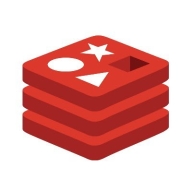

Google Cloud Memorystore and Redis compete in the cloud-based caching and data storage category. Redis appears to have the advantage with its advanced features and language support, although Google Cloud Memorystore has attractive pricing and support.
Features: Google Cloud Memorystore provides serverless operation, high availability, and integration with Google Cloud tools. Redis supports high-speed operations, persistence, and extensive data structures, offering flexibility and impressive performance.
Ease of Deployment and Customer Service: Google Cloud Memorystore offers streamlined deployment within Google Cloud, easing integration for users within that ecosystem. Redis allows versatile on-premises and cloud deployment options, with extensive community support and documentation, appealing to those who seek flexibility.
Pricing and ROI: Google Cloud Memorystore offers a cost-effective model with seamless scalability for efficient cost management. Redis’s comprehensive features mean higher initial setup costs, yet it provides significant ROI for those leveraging its high-performance capabilities. Pricing differences depend on performance and budget needs.
| Product | Market Share (%) |
|---|---|
| Redis | 22.7% |
| Google Cloud Memorystore | 17.3% |
| Other | 60.0% |

| Company Size | Count |
|---|---|
| Small Business | 11 |
| Midsize Enterprise | 3 |
| Large Enterprise | 8 |
Memorystore for Redis provides a fully managed in-memory data store service built on scalable, secure, and highly available infrastructure managed by Google. Use Memorystore to build application caches that provides sub-millisecond data access.
Redis offers high-speed, in-memory storage, renowned for real-time performance. It supports quick data retrieval and is used commonly in applications like analytics and gaming.
Renowned for real-time performance, Redis delivers high-speed in-memory storage, making it a favorite for applications needing quick data retrieval. Its diverse data structures and caching capabilities support a broad array of use cases, including analytics and gaming. Redis ensures robust scalability with master-slave replication and clustering, while its publish/subscribe pattern renders it reliable for event-driven applications. The solution integrates smoothly with existing systems, minimizing performance tuning needs. Although documentation on scalability and security could be improved, Redis remains cost-effective and stable, commonly utilized in cloud environments. Enhancing integration with cloud services like AWS and Google Cloud and refining GUI may improve usability.
What are the key features of Redis?Redis finds application across industries for tasks like caching to improve application performance and speed, minimizing database load. It enables real-time processing for session storage, push notifications, and analytics. As a messaging platform, Redis handles high traffic and supports replication and clustering for cross-platform scalability.
We monitor all In-Memory Data Store Services reviews to prevent fraudulent reviews and keep review quality high. We do not post reviews by company employees or direct competitors. We validate each review for authenticity via cross-reference with LinkedIn, and personal follow-up with the reviewer when necessary.